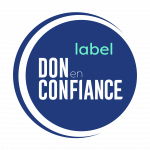
« This book is the fruit of 40 years of studying and analyzing the global fight against AIDS. We are all more or less aware of the major successes in the fight against AIDS in the 1990s and 2000s, which helped save millions of people living with AIDS worldwide and which continue today to keep people in treatment in often difficult circumstances. However, we know far less about the community-mobilization approach that has led to this success.
A book to start talking about the contributions of community mobilization
Neither its contribution nor the conditions necessary for its implementation, nor the people involved have piqued global interest. We want to clarify these aspects for the voluntary sector, and for decision-makers in the public health system. We have not tried to provide an exhaustive document on this subject. Instead one of the main objectives of this book is to encourage people to have necessary conversations, suggest research topics, and, above all, appreciate the work of all those involved. Some of those people have since passed away, while others are focused on continuing this community work but often with little recognition. With this book, we want to pay them a modest tribute.
This is an important issue at a time when the fight against AIDS is no longer a top priority for policy-makers or the public health system. It is a fight that needs to be recognized for its exceptional contribution to community health. The fight against AIDS does not claim to have invented community health. However, there are success stories from around the world that are due, first and foremost, to activists and other people working to put an end to HIV—people who often live with HIV themselves. Thanks to the tightly-woven network between human rights and access to health for stigmatized populations, they could carry out this work.
A tribute to AIDS activists
Another objective is to consider the fight against AIDS in conjunction with the main community health declarations drawn up since the 1980s 13 and to assess whether this fight met the community health criteria set out in the international declarations to support global health. In addition, we have tried to highlight the major lessons learnt from the community mobilization against AIDS, which should benefit other pandemics, other health conditions, and other groups with poor access to healthcare.
As you will see, there is much more to community health than access to healthcare, as it also focuses on the social determinants of health. Therefore, it is no surprise that the fight against AIDS improved community health by proving that respect for human rights is the most important social and societal factor by empowering ostracized populations to enjoy better health and well-being.
Community health, a whole part of the overall public health approach
This book is for all those involved in the fight against AIDS or incommunity health, whether implementers or policy-makers inpublic health. It seeks to bridge the gap by providing a greaterunderstanding of diverse concerns and finding collective solutions.We cannot reiterate enough how fundamental community healthis to the global public health approach. Therefore, it is necessaryto identify the places and, above all, the people to allow thisengagement in the public health system. Without such a strongfocus, it is unrealistic to talk about global health.The seven chapters of this book are relatively independent of eachother and can be read in any order that best suits the individualreader’s needs. Even though reading it in order will provide greaterclarity, it is not essential.
Last but not least, this book is based on the combined experiencesof Coalition PLUS members and some other organizations. We haveused experiences in the field to illustrate the points made in partsof the book that may sometimes seem theoretical.
The purpose of this book is also to be adapted, critiqued andimproved upon in order to be re-appropriated. As a result, theconcept of community health will become clearer and can beimplemented as the main approach to healthcare access and toprevention for the most marginalized in our communities. This iswhat Coalition PLUS stands for.
We hope you find it interesting ».
Dr Hélène Rossert
For Coalition PLUS
« The world has changed. We need to learn from the impact of the community-based approach on the fight against HIV in other areas of society and access to healthcare worldwide with respect for human rights. do nothing about us without us! »
Vincent Pelletier, Former CEO of Coalition PLUS







